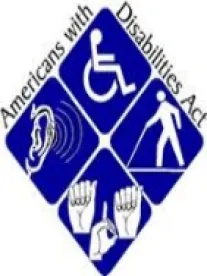Legal counsel for companies have long emphasized the importance of engaging in the “interactive process” in dealing with an employee’s request for an accommodation for a disability. We also advise that the accommodation must be “reasonable” but not necessarily the one that the employee seeks. It should be obvious that the only way to determine reasonable options to the requested accommodation is to communicate with the employee and/or the treating physician. However, human resources professionals and company managers are frequently stymied when the employee does not cooperate, and avoids any meaningful dialogue. Two 2016 cases illustrate the employee’s legal obligation to participate in the “interactive process” when seeking an accommodation. We encourage you to keep your employee’s obligation top of mind when evaluating a request for an accommodation.
Failure to Communicate
In one case, the employee of a small company in Texas told his supervisor that his health was suffering and that he needed to undergo medical testing. On a Friday a few weeks later, the employee exchanged e-mails with the owner of the company saying that he was going to the doctor on the following Monday. The owner responded that he should see his doctor and “get the proper treatment”. On Tuesday, the employee told his supervisor that he had an enlarged spleen and kidney stones and “hoped to be back at work soon”. The company said that the employee did not communicate further with anyone else at the company, missed the entire week of work and the following Monday, and that a supervisor had attempted to contact him but that the employee had never responded. The employee claimed that he had been in contact with company representatives while absent. When the employee returned to work on Tuesday, he was asked to produce a doctor’s note corroborating his excuse for his absence. He did not produce one. On Thursday, the company terminated the employee for violating its attendance policy, which provided for immediate termination if an employee failed to show up at work for more than three consecutive days without notifying a supervisor. The employee sued under the ADA for failure to provide a leave of absence as a reasonable accommodation for his disability. The United States District Court granted summary judgment in the company’s favor and the Fifth Circuit affirmed. The Court pointed out that while a leave of absence may be a reasonable accommodation, an indefinite leave is not. Then, without discussing whether the employee had a disability to begin with, or had actually requested a reasonable accommodation, the Court assumed that “the interactive process had been triggered” but that the employee had “fatally hindered that process” by failing to provide a doctor’s note. (In the litigation, the employee produced a doctor’s note, created one month after the employee was terminated. The Court gave no consideration to the after-the-fact note.) Finally, the Court pointed out that company had given the employee the opportunity to preserve his job if he would produce a doctor’s note, which he never did.
ADA Accommodation Odyssey
The second case involved The Boeing Company and its lengthy effort to provide accommodations to an employee earning a six-figure salary. About one year after taking a new position as an Industrial Engineer, and after having a “coaching session” with her manager about her work performance, the employee claimed that she needed work instructions in writing to help her “understand what is being asked”. The Company responded that it had no medical restrictions on file and that she should see Boeing Medical if she needed an accommodation. Later, after receiving a notice to attend a disciplinary meeting with her supervisor, a human resources representative and her union representative, the employee provided Boeing Medical with a letter from her doctor stating that the employee should “be given her assignments and tasks in written form or electronic form.” Later, Boeing learned through the employee’s physician that the employee had been diagnosed with Asperger’s Syndrome (High functioning Autism). Thereafter and continuing for the next six months, Boeing engaged in what might be characterized as an “ADA Accommodation Odyssey”, during which time the employee’s doctor changed the requested accommodations, the employee filed an EEOC charge, and Boeing provided the employee with a number of accommodations, including written instructions, unpaid leave and job coaches. Finally, Boeing terminated the employee for failing to meet performance standards. After a bench trial, the United States District Court ruled in Boeing’s favor, finding that the employee’s “failure to engage in the interactive process in good faith removed Boeing’s obligation to provide a reasonable accommodation.” Quoting a Ninth Circuit case, the District Court stated that the interactive process requires “communication and good –faith exploration of possible accommodations” between employer and employee and neither side can delay or obstruct the process. The Court concluded that, throughout the interactive process, this employee “was implicitly and even explicitly focused on building a lawsuit against Boeing, and this contributed to the repeated breakdowns in the interactive process.”
Take-aways:
-
Communicate, communicate, communicate, and document those communications.
-
Insist on receiving medical documentation of the physical or mental condition as well as the need for the particular accommodation requested.
-
Gather information on the condition to make yourself knowledgeable and consult with a medical expert on the particular condition. Boeing did this, and researched possible accommodations for Asperger’s Syndrome through the Job Accommodation Network. (The Job Accommodation Network is the leading source of free, expert, and confidential guidance on workplace accommodations and disability employment issues. Working toward practical solutions that benefit both employer and employee. https://askjan.org)
-
Consider seeking an independent medical examination.
-
Explore accommodations other than the requested ones that may be reasonable and less burdensome.
-
Insist on performance standards within the essential functions of the job.
-
If a leave of absence is requested, don’t leave it open-ended or indefinite.
-
Document any delay in, or obstruction of, the interactive process by the employee.
-
Remain persistent.




 />i
/>i

